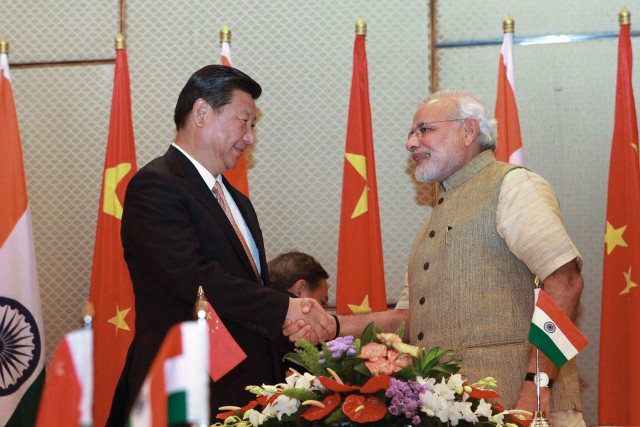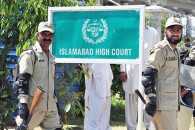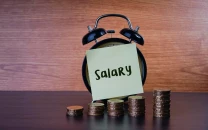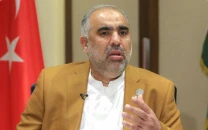Chinese premier’s visit to India: Of talks, investment and existential threats
Concerns aside, it cannot be denied that Xi Jinping's visit to India visit is off to a great start

It was from Japanese Prime Minister Shinzo Abe and said: “happy birthday, Modi-san, had a great time in Tokyo, see you next time”. (It was Modi's 64th birthday today).
The informal tone of the message was designed to rub in to anyone who was listening about the highly successful Japan visit Modi undertook recently and to subtly tell the Chinese that Japan had managed a prior claim on the Indian Prime Minister.
As President Xi and his wife touched down at Ahmedabad airport ( she looked resplendent in a baby pink outfit), they received a welcome that is unusual. That the Chinese premier began his visit with Ahmedabad, Modi's former domain, Gujarat, was in itself unusual (most other premiers, such as Bill Clinton, visited Hyderabad towards the end of their visit).
But from trying his hand at spinning a charkha (a traditional symbol of Mahatma Gandhi's campaign in Gujarat) swinging gently on the traditional lac Sankheda swing (another Gujarati symbol) and a 150-course vegetarian dinner of Gujrati cuisine, Xi found time to sign three memoranda of understanding: one twinning Guangdong and Gujarat and Ahmedabad and Guangdong; an MoU in industrial sector between China Development Bank Corporation and Indext-B( Industrial Extension Bureau) and a third extending Chinese support to Industrial park project in Gujarat.
The substantive work – of discussing the border dispute, MoUs for investment and China's claim that its High Speed Railway is better than Japan's – will follow tomorrow and the day after.
Captains of Gujarat's top industrial and business groups, the chief minister of the state and ministers were present at the occasion. This only served to underline the theme of investment and business that will mark the remainder of Xi's visit.
India's economic growth has flagged in recent years, and commentators now talk of catching up with their regional rivals. It is an indisputable fact that from economic parity in 1980, China's growth has outstripped India's fourfold. Nor can it be denied that since gaining independence from Britain in 1947, India has constructed 6,800 miles of railway track, while China added 8,700 miles in the five years to 2011.
Wang Dehua, director of South and Central Asian studies at the Shanghai Municipal Centre for International Studies, said the visit – the first by a Chinese head of state to India in eight years – was likely to focus on economic cooperation, including investments in transport infrastructure and the creation of industrial zones.
Xi, who took power in 2012, arrives after touring the Maldives and Sri Lanka, two countries where growing Chinese influence has worried India. Delhi also has concerns about China's relationship with its neighbour Pakistan and its growing role in Nepal.
Beijing has been unsettled by Indian-US cooperation in the Asia Pacific region and Indian's stance on territorial disputes involving China and other nations in the South and East China Seas.
This is what makes relations between India and China complicated. "On the one hand China is a great opportunity for investment and trade but any Indian will tell you that the big existential threat to their country is not Pakistan but China. That's the only superpower in the neighbourhood and one with which they have already fought a war," one diplomat was quoted as telling the western media.
It could be just a coincidence that on the eve of Xi's visit, tension broke out following reports of clashes on Sino-Indian border with Indian troops challenged a posse of 200 Chinese soldiers, allegedly trying to build a road on Indian territory and drove them back.
Just as in relations with Pakistan, the elephant in the room is China; in talks with China, it is Pakistan and India's complaints about infiltration that will figure. However, it cannot be denied that Xi's India visit is off to a great start.



















COMMENTS
Comments are moderated and generally will be posted if they are on-topic and not abusive.
For more information, please see our Comments FAQ